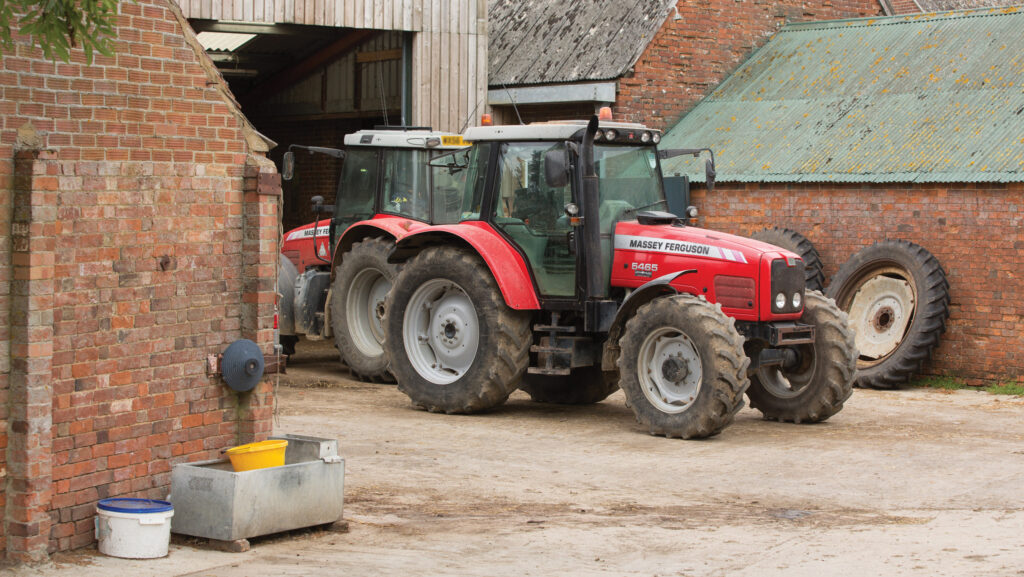Business Clinic: Tax advice on farm sale and machinery disposal
 © Tim Scrivener
© Tim Scrivener Whether it’s a legal, tax, insurance, management or land issue, Farmers Weekly’s Business Clinic experts can help.
Joe Spencer, a partner with MHA, advises on the tax implications of moving to using a contractor and selling the farm machinery in advance of a farm sale.
See also: Business Clinic – advice on employing staff for the first time
Q: I’m planning to retire and sell the farm in 2025, ideally vacating after next harvest if all goes to plan.
In the meantime, I switched to using a contractor once we finished combining this year, and plan to sell all my machinery over the coming winter and spring.
My accounting year end is 31 March, and I would like some advice on the tax implications of my machinery disposal plan please.
A: You will have a busy 18 months ahead, and probably some significant tax bills to face at the end.
The first thing that you should do is bring your accountant into the picture. Their advice over this period will be invaluable.
You need to sit down with them now and share your expected cashflow figures for harvest 2024, harvest 2025, and the value and timing of the machinery sales, so they can see where the tax liabilities will fall.
There will obviously be a fee for this, but it is probably the best value you will ever have from them.
They will explain:
- Over this period, you will release two harvests, but only incur 18 months’ overheads. On an operational level, the year to March 25 should look fairly “normal” (depending on your harvest in what has been a difficult year for most), but the following year will show a full year’s gross profit but only six months’ overheads. It will also include the income from clearing the yard, tools, obsolete or vintage kit and scrap, which can be a significant amount.
- The sale of the main machinery will probably give rise to a one-off tax charge. Over the last few years, capital expenditure has been given 100% relief in the year of purchase, so most farms do not have a “pool” of unrelieved expenditure, and when kit is sold, the amounts are fully taxable in the year of sale – probably in 2024-25 in your case. With forward planning you may be able to spread the sales if necessary.
- Business cars are dealt with in a separate pool. If a vehicle is sold, then a tax charge or claim will arise. If it is taken over on cessation, it will need to be treated as if sold to you at market value (as will any pieces of farm machinery which are retained).
Having established the rough level of taxable income for each year, you can look at mitigation. This might involve:
- An averaging claim for 2024-25 (you cannot claim averaging in the tax year when the business ceases). This will enable profits to be carried back for up to five years previously which can utilise previously unused basic tax rates or allowance. Machinery sales are included in the profits which are averaged, so by timing these appropriately you have some scope for controlling this figure.
- Look at the “cash basis” of accounts for 2024-25. This will be the default option for that year (although you can “opt out”) and means that tax is based on what you actually pay and receive rather than when goods are invoiced. This will probably tend to move profits into the final year of trading, and averaging is not permitted for a cash basis business, but check it out nonetheless.
- Look at your personal pension position. Under current rules you can invest up to £60,000 (or your total earned income if lower) in each year. These contributions are fully tax allowable, and this may be your last chance to move sizeable sums into a tax-exempt fund.
Do you have a question for the panel?
Outline your legal, tax, finance, insurance or farm management question in no more than 350 words and Farmers Weekly will put it to a member of the panel. Please give as much information as possible.
Email your question to FW-Businessclinic@markallengroup.com using the subject line “Business Clinic”.
